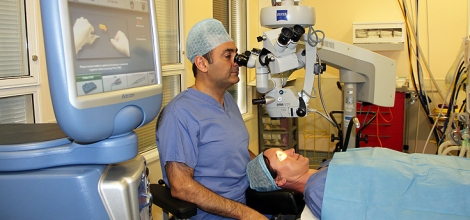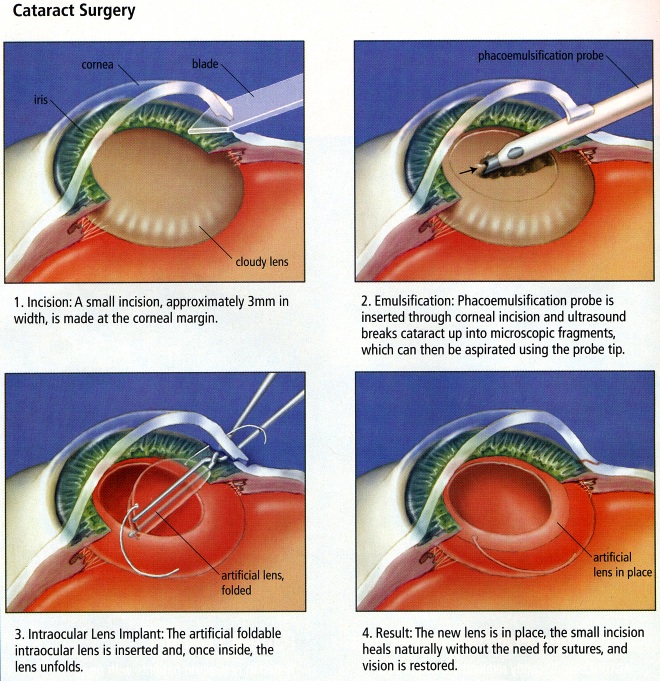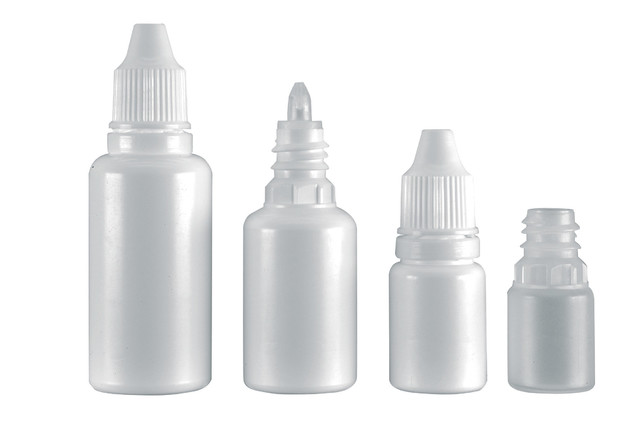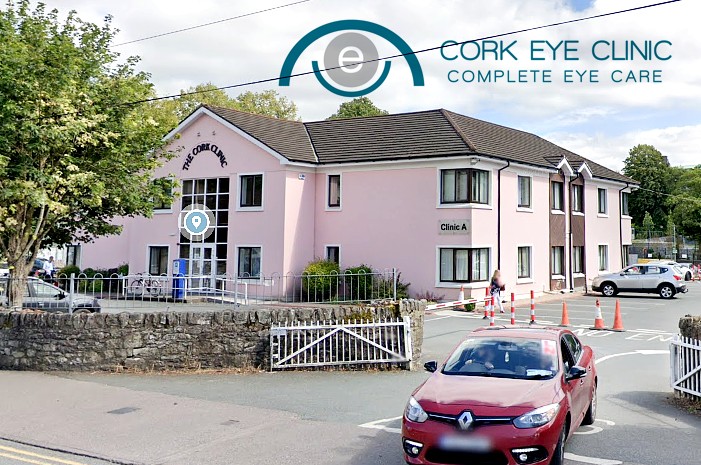Cataract Surgery

How is a Cataract Removed?
Cataract surgery is performed as a day case procedure.
The cataract is removed by a surgical technique called phacoemulsification.
The cataract is replaced with a permanent artificial lens implant. This surgery is carried out through a very small incision which reduces healing time and speeds up the visual rehabilitation of the eye.

Surgery is carried out under topical anaesthesia and is completely needle-free.
Anaesthetic drops are used to numb the eye with no local anaesthetic injections required.
Topical anaesthesia is free from side effects associated with other forms of local anaesthesia and has the added advantage of no disruption to the patients’ anticoagulation treatment (there is no need to stop Aspirin or Warfarin).
A general anaesthetic is also available when indicated or preferred by the patient.
Surgery is very quick (15-20 minutes) and painless for the patient.
The patient is discharged once fully recovered.
Waiting Times
A new patient pathway has recently been introduced in the Bon Secours Hospital, Cork.
This has significantly reduced patient waiting times on the day of surgery. As a result the majority of patients are in the hospital for only 2 to 4 hours on the day of their surgery. This is a significant reduction from the 6 to 8 hours previously reported.
This is to ensure a more efficient and timely transition and allowing for a better experience for the patient and their family.
Risks and complications
 Cataract surgery is regarded as a very safe procedure and major sight-threatening complications are very infrequent. However, as with any surgical procedure, there are risks associated with cataract surgery which can include:
Cataract surgery is regarded as a very safe procedure and major sight-threatening complications are very infrequent. However, as with any surgical procedure, there are risks associated with cataract surgery which can include:
- Infection
- Bleeding inside the eye
- Increased pressure inside the eye (Glaucoma)
- Swelling of the retina
- Swelling of the cornea
- Retinal detachment
- Loss of vision (partially or completely)
In some cases, the part of the lens covering that supports the IOL (called the capsule) can become cloudy several months or years after the first cataract was removed. This is called an "after cataract" or "secondary cataract." If this occurs and blurs your vision, Mr Golchin will make an opening in the centre of the cloudy capsule with a laser to allow light to pass through the lens properly again. This procedure called a posterior capsulotomy takes about five minutes and requires no recovery period.
Following Discharge
Diet
Medications
- Please instal the postoperative eye drops as instructed. Resume normal medicines.
Activity Guidelines
- Wear the eye shield supplied for one week after the surgery at night to avoid rubbing the eye while you sleep.
- Do not swim for at least 2 weeks.
- Avoid vigorous exercise for at least 2 weeks.
Follow-up
The first morning after your surgery you will be seen in the Outpatients Department where your shield will be removed, your eye cleaned and drops instilled.
Please bring all your drops with you to the clinic on the day of your follow up appointment.
Allow 1-2 minutes between both sets of drops. Use your drops as prescribed. You will be given a review appointment for follow up

Results
To date, Mr Golchin has performed over 15,000 cataract surgeries.
Our in house cataract audit reveals that over 85% of patients Mr Golchin has operated on do not require glasses for driving or distance vision post surgery.
Best vision is usually achieved once both eyes have been operated on.
If you require any further information or are interested in booking an appointment regarding your cataracts please don't hesitate to contact the clinic on 021 4341030 or bgolchin@corkeyeclinic.ie








 Mr. Behrooz Golchin
Mr. Behrooz Golchin